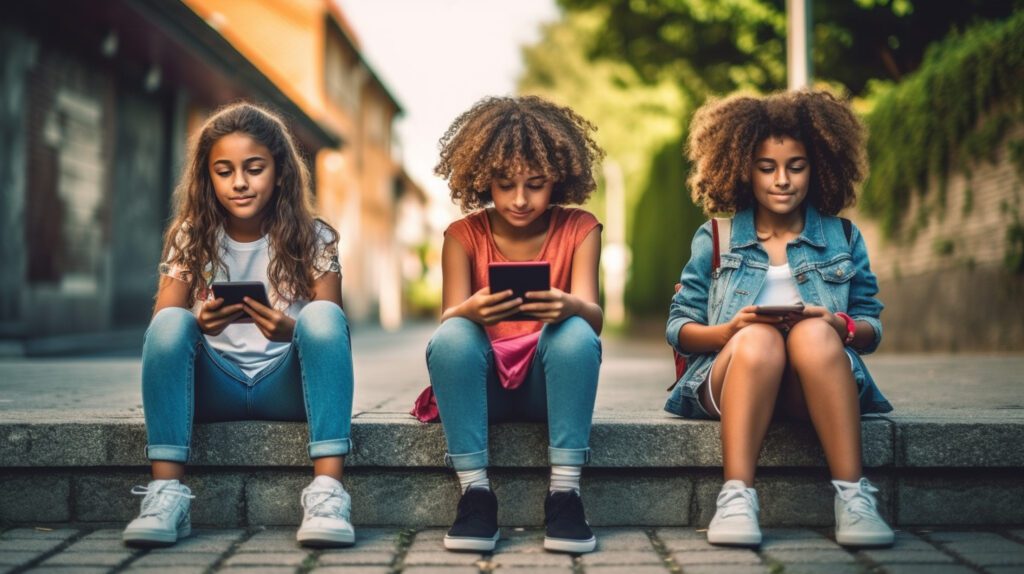
The U.S. Surgeon General Vivek H. Murthy issued a new Advisory and 19-page report expressing alarm about the impact of social media on adolescents’ mental health and calling out the need for more research in this area.
A Surgeon General's Advisory is a public announcement that draws the attention of the American public to a pressing public health concern and offers guidance on how to tackle it. Such advisories are issued only for substantial public health issues that demand the country's immediate consciousness and action.
This Advisory highlights increasing worries about the impact of social media on the mental health of young people. It outlines the present evidence concerning the beneficial and detrimental effects of social media on children and teenagers, the main areas of concern for mental health and well-being, and the need for further research to fully comprehend the extent and magnitude of social media's influence.
Up to 95% of youth ages 13–17 report using a social media platform, with more than a third saying they use social media “almost constantly.” Although age 13 is commonly the required minimum age used by social media platforms in the U.S. nearly 40% of children ages 8–12 use social media.
The Surgeon General’s report highlights some of the research that’s been done so far, such as a 2019 study conducted among 14-year-olds that found that greater social media use predicted worse sleep, online harassment, poor body image, low self-esteem, and more symptoms of depression — especially among girls.
Recently, the results of a global study found a correlation between the age someone receives a smartphone or tablet and their mental health as an adult; the earlier a child starts using a device, the more mental health issues they report as an adult.
Brain development is a critical factor to consider when assessing the risk for harm. Adolescents, ages 10 to 19, are undergoing a highly sensitive period of brain development. This is a period when risk-taking behaviors reach their peak, when well-being experiences the greatest fluctuations, and when mental health challenges such as depression typically emerge.
Scientists and psychologists have found some positive benefits to social media use for adolescents, particularly for members of marginalized groups. It can help kids feel more accepted, provide avenues for self-expression, and help them stay connected with friends. But a long-term study of U.S. teenagers aged 12-15 found that those who used social media for more than 3 hours a day were twice as likely to have problems with their mental health, including feeling depressed and anxious. This is concerning in light of the fact that preteens and teens are spending hours every day on social media — an average of 3.5 hours per day for 8th and 10th graders, according to a 2021 study.
Existing research has been mostly correlational and focused on adults. There's an urgent need for more research on social media and youth mental health to fill knowledge gaps.
Key questions that still need to be explored include:
Nearly 70% of parents say parenting is now more difficult than it was 20 years ago, with technology and
social media as the top two cited reasons. But there are early indications that limiting how much time children and young adults spend on social media can help improve their mental health.
In a small study with college students, researchers found that if students used social media for only 30 minutes a day for three weeks, they felt less depressed. This was especially true for those who were very depressed to start with; they reported feeling 35% better after limiting social media. In another study, young adults and adults who stopped using a social media platform for four weeks felt happier, more satisfied with life, and less depressed and anxious. It’s not hard to imagine that we might see an even more dramatic improvement for kids.
In addition to limiting the time kids spend on social media, the Surgeon General’s report included these suggestions for parents:
Discuss with children the benefits and risks of social media as well as the importance of respecting privacy and protecting personal information in age-appropriate ways. Have conversations with children about who they are connecting with, their privacy settings, their online experiences, and how they are spending their time online. Empower and encourage them to seek help should they need it.
We need to give kids and their families the knowledge and tools to safely use the internet, but this responsibility should be shared. Tech companies can do things to make their platforms safer for kids and teenagers. Researchers can work on studies to help create more safety measures. Local, state, and federal governments can also make rules to protect our kids and teenagers.
In the past, the U.S. has taken action to keep kids safe. This has happened with things like toys, transportation, and medicine. The U.S. often uses a "safety-first" approach. This means that something has to be proven safe before it can be used. If it's not proven safe, steps are taken to keep people from getting hurt.
This same approach should be used for the internet and social media. Because there's growing proof that social media can harm some kids and teenagers, we should use a "safety-first" approach when it comes to social media. This means making sure it's safe before letting kids and teenagers use it.